1. Being better-informed
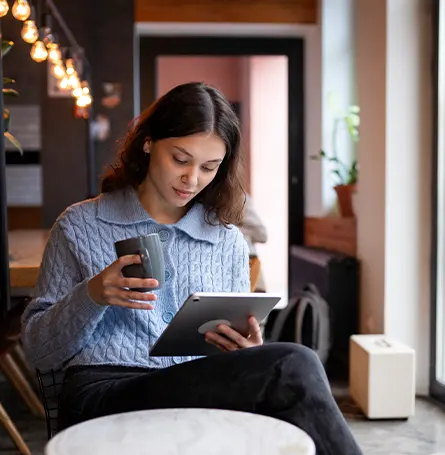
While it might sound dull, one of the most notable leaps in sleep science is just how easy it now is to understand what's going on. Just the fact that you're currently reading this proves that you don't need to be a doctor to grasp the fundamentals of sleep!
And by understanding things such as your sleep patterns or the changes your body goes through when falling asleep, you can easily avoid pitfalls that would have caused another sleepless night. For example, by knowing that greasy food will make falling asleep more difficult, you can plan accordingly and have fewer sleep problems.
Or if you know that your core body temperature needs to drop for you to fall asleep, you can make sure your room is cold and make it easier to drift off.
In other words, if you're an avid follower of The Sleep Advisors, you already know ten different ways to fall asleep more easily. And all of these methods rely on science!
Sleep trackers
It's one thing to have a solid grasp of how sleep works and another to have actual sleep data! And having your own sleep device has never been easier, with even the best sleep trackers being pretty easy to come by. Sure, they're not always cheap but new technology rarely is.
And let's be clear here, having a sleep tracker isn't just a neat bit of extra information – it can really help you if you have trouble falling asleep. We recently even covered a study that examined how understanding your sleep raises your sleep quality.
This is because you can set up your alarm to wake you when you're in light sleep or see how long it takes you to fall asleep so that you can plan accordingly.
And while we're against self-diagnosis, a sleep tracker can sometimes set alarm bells off when it comes to sleep disorders. If you see irregular sleep cycles or frequent sleep disturbances, it can tip you off that a sleep disorder might be behind it all.
2. Creating a better sleep environment
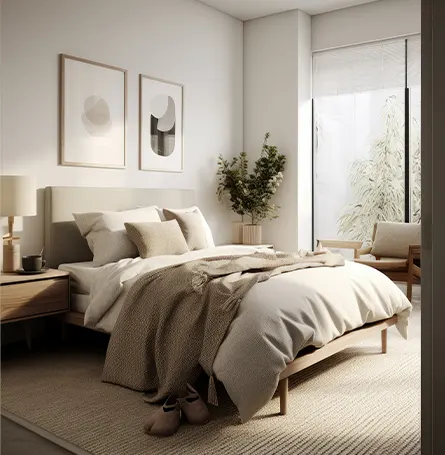
On a similar note, there are now plenty of products that can help you with issues you didn't even know you had! This isn't to say that these issues are minor mind you but rather that people tend to overlook their importance.
For example, if you want to support quality sleep, you need a completely dark room. And now you can easily get blackout blinds or blackout curtains that help you achieve just that.
Or, the humidity in your bedroom is a bit too high and it feels damp, making it harder to fall asleep. Well, just get a dehumidifier. Or, if the air is too dry, get a humidifier! You can basically control the humidity in your room with just a few gadgets.
And this list is quite long. You can get a good weighted blanket to calm yourself down, an electric blanket to stay cosy, and so on and so forth.
And even though none of these items are “sleep tech” per se, they can all help you fall asleep more easily. Especially when they're combined with good sleep habits. So, they definitely deserve their own segment.
3. Treating sleep disorders
We touched on how electronic devices can help diagnose sleep disorders but it's also important to note how they can help! After all, by design, a sleep disorder will get in the way of getting a better night's sleep. Luckily, modern technology has found many different ways to deal with many different conditions.
Sleep apnea
In the UK alone, around 1.5 million people suffer from Obstructive Sleep Apnea. So, it's safe to say that it poses quite a threat to sleep health. And while not every person with sleep apnea will necessarily experience severe sleep disturbances, it's always best to treat the condition as soon as possible.
And modern technology has offered us a few solutions. For one, the CPAP machine. While this machine can be quite cumbersome and people aren't always a fan of using it, it can help lessen the effects of OSA and allow you to get higher-quality sleep.
Secondly, there are now adjustable bed frames and adjustable mattresses that allow you to sleep at an angle, which can help with OSA as well.
Lastly, as we've recently covered in a study review, weightloss can help OSA patients to a large degree as well. And we've seen quite a few shake-ups in this field in the form of synthetic peptides.
Insomnia
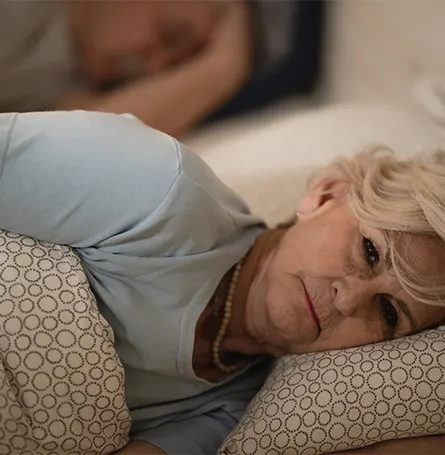
Insomnia is likely the sleep disorder most people first think of when talking about the subject. After all, depending on how loosely you define insomnia, between 5 and 50% of people in the UK have it! And while we have yet to discover the magic pill that completely cures insomnia, technology has made rapid advancements when it comes to dealing with the symptoms.
For one, it's not relatively easy to pick up a melatonin supplement to help your body doze off more easily. And even things such as magnesium supplements or Valeria extracts can also help in some cases.
But we also have methods of dealing with the issue at its source. Since insomnia can be caused by poor mental health, approaches such as Cognitive Behavioural Therapy are becoming rather dependable. And you now even have variations of this approach such as sleep restriction therapy that seem rather promising.
So, while we can't “cure” insomnia, it's safe to say that we aren't out of options either. And all of these solutions came about through our better understanding of the body and the mind.
4. Specialised bedding
It's also worth pointing out that bedding has come a long way! Mattresses aren't just a slab of hay that you lay on, you have special pillows depending on your sleeping position, blankets have temperature control now, and so on and so forth.
And aside from just potentially giving you choice paralysis, these advancements mean that there is proper bedding for everyone! Regardless of what sleep or medical disorder you might have, your medical history, or your sleeping preferences, you can get the perfect bed.
So, let's just go over some of the highlights.
Medical mattresses
Mattresses have probably become the most unique and can now actively help alleviate certain symptoms of some medical conditions. For example, if you have pressure ulcers, you can get a pressure mattress. These are mattresses that inflate and deflate throughout the night so that no one pressure point takes on your weight for a long period of time.
You also have adjustable mattresses, that can help you sleep at an angle, helping with conditions such as GERD or sleep apnea.
If you have back pain, you can get an orthopaedic mattress. These are mattresses that have been made a bit firmer, with zoned support to better alleviate joint and back pain.
But you can often just avoid having back pain in the first place by getting the right mattress. That's because you can quickly sort mattresses into different categories – like mattresses for side sleepers, for back sleepers, and for front sleepers. And yes, they are different, it's not just for show.
Everything is more breathable
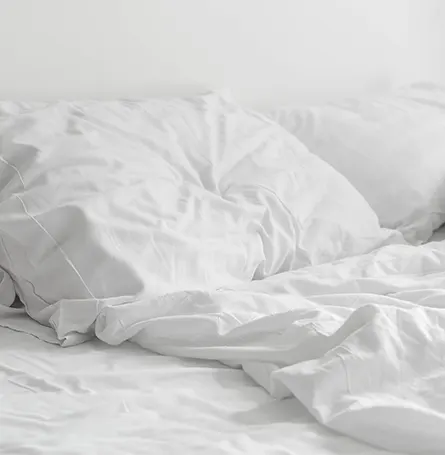
Bedding has also gotten a lot more breathable, with temperature regulation being a very common feature these days. And it's fascinating to see all the different ways manufacturers have gone about achieving this!
On the less creative end, you have latex mattresses with pinholes to help air circulate more easily. Mattresses and pillows sometimes come with side vents or meshes. And materials such as cotton, eucalyptus, and bamboo are making their way into sheets, pillowcases, and duvet covers.
But you also have more creative approaches present. For example, you have gel mattresses, that utilise special cooling gels to stop you from overheating. Some manufacturers infuse their foam with bamboo or graphite for the same purpose. And even pillows, like the Simba Hybrid Pillow, are utilising adjustable fillings that don't hold on to heat.
And again, your body needs to be cool for you to fall asleep. So, all of these changes are not only great at keeping you sweat-free but also improve sleep in general!
Everything is more ergonomic
Newer bedding also makes sure that you have 0 aches in the morning. And that's because how people sleep is now taken into account when making most bedding. We already talked about how mattresses can help with back pain but did you know there are mattresses for hip pain as well?
Via zoned support, 10-layer mattresses, individually-nested pocket springs, special foams, and a hundred different means, modern bedding makes sleep as stress-free for the body as possible.
That's why some pillows for side sleepers arc at the bottom to support your neck, why pillows for front sleepers are completely flat, and why even combination sleepers can have it their way by getting an adjustable pillow (like the Emma Original Pillow).
In other words, as long as you're patient enough to look for the right products, your body can be optimally supported the entire night. And you best believe this will raise your sleep quality!
5. Sleep tech for every issue
Lastly, we want to talk about everyday gadgets that you can use to fall asleep more quickly. And while we've already mentioned a few of them, like white noise machines and humidifiers, there are still plenty out there!
So, let's go over all the sleep gadgets that you can use to solve a certain problem and be fast asleep within minutes.
Sleep apps
Whether you want to learn your sleep metrics or have a hard time relaxing at night, there's an app that can solve the issue. In fact, we have an entire list of sleep apps to help you sleep!
Some of these apps play relaxing soundscapes or have guided meditations. Others help you track your sleep cycle and identify sleep problems. And quite a few of them are just tied to cell phones, meaning that you don't even need any extra gear!
So, when it comes to everyday sleep tech that can help anyone get a better night's sleep, sleep apps are the easiest to get into and use.
SAD lamps
A not-so-fun fact is that winter, and sometimes even summer, can severely mess with your circadian rhythm. This is called Seasonal Affective Disorder and it can ruin your sleep quality for months if left untreated. Luckily, we've found a way to combat this mental health issue through the power of LED lights!
They're called SAD lamps and they basically imitate the Sun's light. This is because light is a major trigger for our bodies when it comes to falling asleep as well as waking up.
So, by having a strong light reach your eyes in the morning and a soft light towards the afternoon, this sleep device can both make it easier to fall asleep and allow you to have more energy in the morning! And it's one of our favourite examples of how influential sleep tech can be.
Smart alarms
While the sound of an alarm clock is universally hated, it's no secret that they're essential for most of us. However, modern alarm clocks have gotten a bit smarter. So, instead of waking up to the sound of sirens, you can now wake up slowly and peacefully.
You have alarms like the Philips Wake Up Light for example, that will play relaxing sounds and even imitate a sunrise to wake you up. And if we go back to sleep apps for a second, you can even get apps that wait for you to be in light sleep before waking you up – significantly lowering stress in the morning.
And waking up peacefully and on time each morning will, in turn, help you fall asleep more quickly at night since your circadian rhythm will be more “in tune”. So, even your mornings can technically be part of your bedtime routine.
Sleep headphones
While listening to the sound of rain or white noise can help you fall asleep more quickly, your partner might not want to take part – especially if you have different sleep schedules. Luckily, a good pair of sleep headphones will solve everyone's problems!
And these headphones have gotten pretty advanced. They're usually wireless so you can twist and turn as much as you want. They have noise-cancelling properties, so you won't hear your partner watching TV. And they're rather small, so you won't feel uncomfortable even when sleeping on your side.
Sleep-friendly options
Lastly, even tech that wasn't designed to help you fall asleep has become more sleep-friendly. The main argument here is about electronic devices and blue light. Blue light is used by most screen devices and it can make falling asleep a lot more difficult.
However, technology has adapted to this fact. That's why many phones these days have eye-fatigue mode and you can even find blue light-blocking glasses. Although there has yet to be concrete evidence that these glasses provide significant help.
Still, the fact that they're getting developed at all should showcase that sleep technology is still getting better, even today!
Conclusion
In conclusion, sleep technology truly has come a long way. And even though plenty of people are still having sleep problems, in spite of these numerous advances in sleep tech, we remain optimistic! If nothing else, it just means that you now have more options than ever to fix your sleep quality or sleep duration.
From trackers letting you understand sleep patterns, to specialised beds, breathable pillows, and apps that can help you relieve stress and imagine you're in a serene forest – sleep technology is a lot more diverse than you'd think.
So, what's your favourite piece of sleep tech? Let us know in the comments! And if you have any questions about how to better your sleep quality, feel free to get in touch.

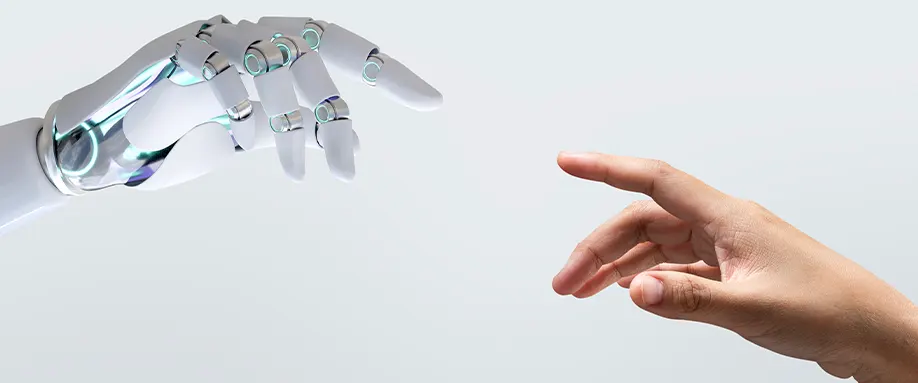











There are no comments yet
"*" indicates required fields